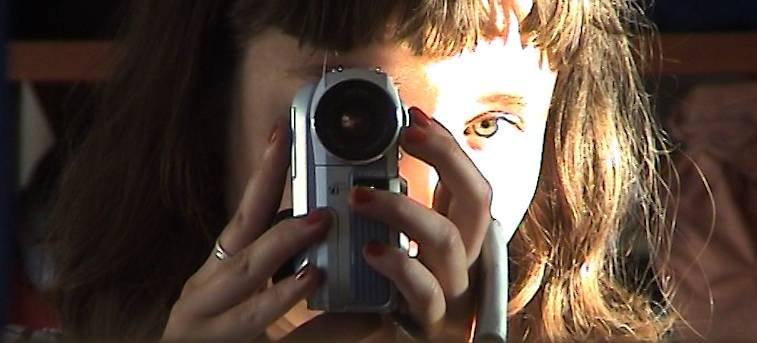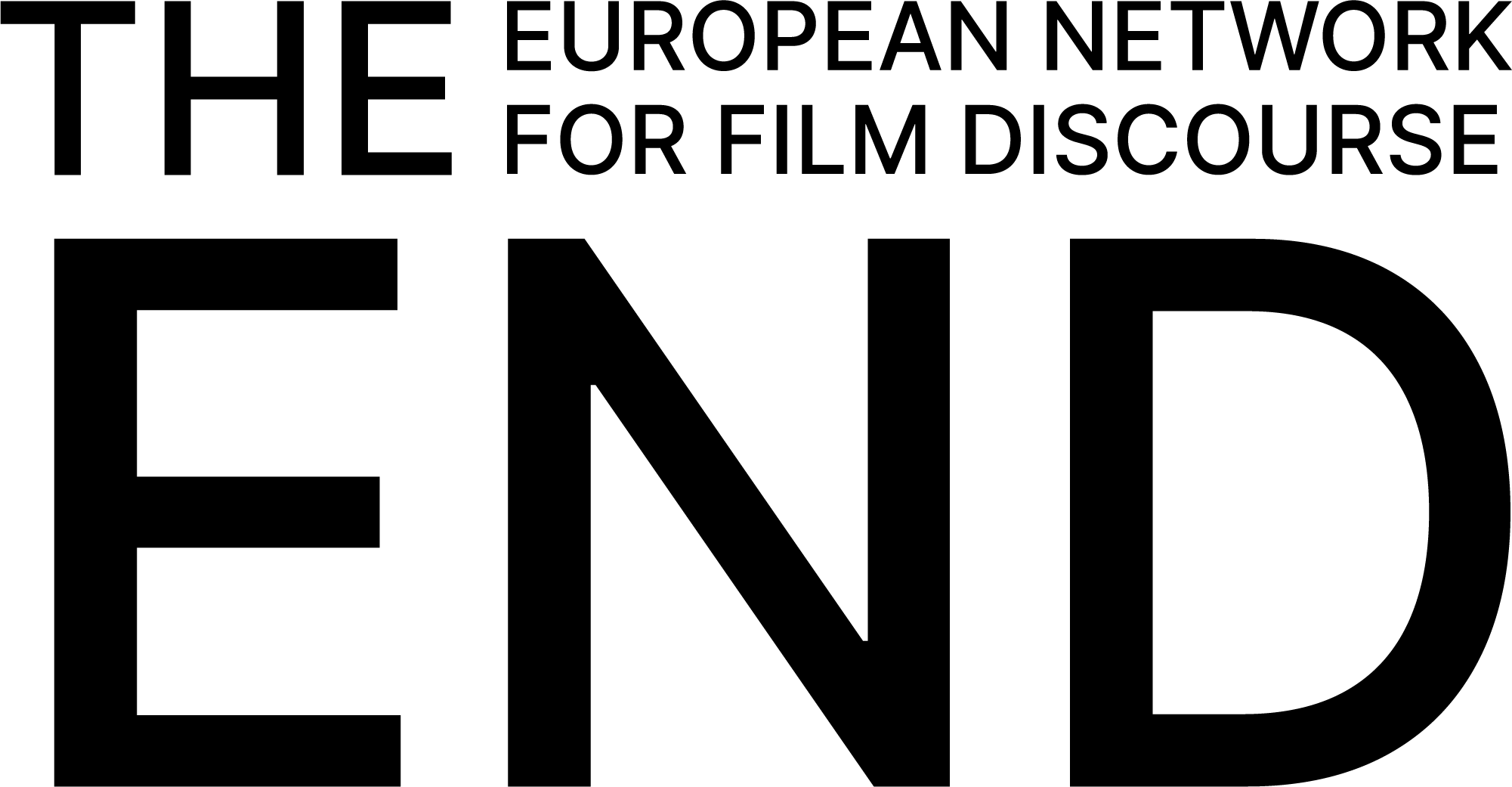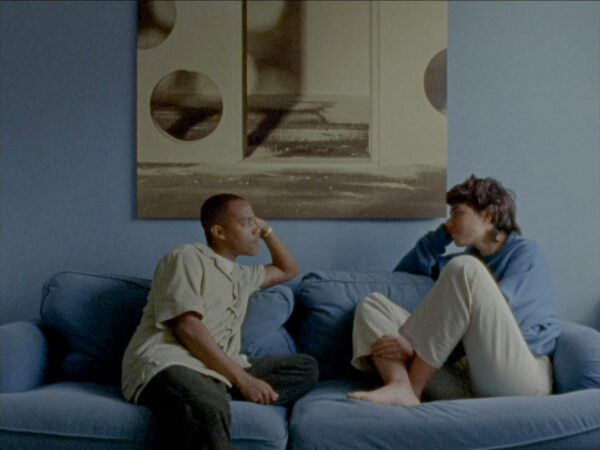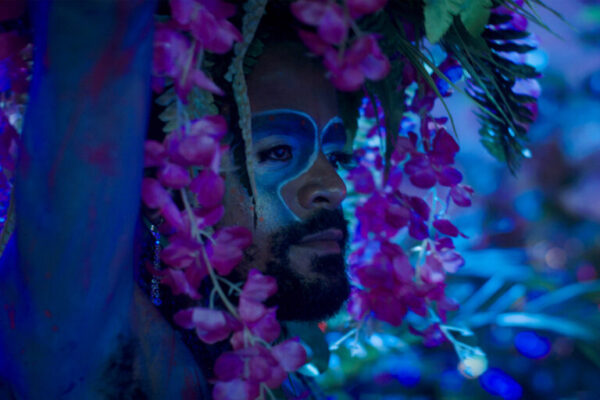Troubleshooting a Love Story
10 Missed Calls
Through an experimental film essay, filmmaker Coline Confort aims to capture the “rupture and repair” of a relationship.

Two lovers struggle to stay connected over an extended separation: just one of countless other long-distance relationships, the millennial romance par excellence. In her experimental film essay, playing in the international competition at Lago Film Fest, Coline Confort aims to capture her first-hand experience of one such relationship, conjuring a sense of what psychologists describe as ‘rupture and repair’: the breaking and restoring of bonds partners share with each other. Halfway through 10 Missed Calls, the narrator and protagonist, Naoto Nitta, sends two tapes to his girlfriend Coline (the short’s cinematographer and screenwriter). It’s the ninth and tenth ‘calls’ the film’s title alludes to. “I got skinnier, didn’t I? I look like a skeleton,” he mumbles. “I hope I can call you tomorrow morning. That’d make me happy. Yep, goodbye. Oyasumi.”
Naoto’s missives—seesawing between tenderness, anxiety, self-doubt, and yearning—form a long dispatch through which the young man seeks to maintain a connection with Coline; a call for her attention as much an attempt to share moments from his life in Kyoto. The film stitches together Naoto’s recordings—videos that look culled from Instagram and other social media stories—with Coline’s own footage, a series of fleeting images shot on old-school Mini DV tapes. The mix imparts a sense of reverie, with scenes that feel unmoored in time, as in an analogue-digital love story. Unfortunately, the film’s aesthetics and formal aspects prove more convincing than the story itself.
Confort uses this fragmented but naturalistic approach to depict the ups and downs, the longing, the brokenness, and the insecurity Naoto feels while separated from a lover marooned on the other side of the globe—one wonders if due to COVID-related lockdown restrictions. Some moments deliberately echo Richard Linklater’s Boyhood, mirroring Mason Evans’ gradual ageing before the camera. Like Boyhood, 10 Missed Calls devotes many scenes to Naoto’s physical changes; his hair grows longer, his beard fluctuates in length, and he frequently comments on his changing appearance.
Brandon Beytrison’s fluid editing supports Confort’s quest for raw authenticity. The film strikes a near-perfect balance between chaotic scenes—in which Confort concocts a dizzying kaleidoscope of places, objects, and people—and steadier shots that allow Naoto to share deeper, more complex emotions. It is an intimacy amplified by Confort’s soft focus and grainy cinematography, combined with Sebastian Friedmann’s impactful sound editing. The music creeps subtly, sometimes in the background of Naoto’s quotidian routine, other times via folk songs like Angus & Julia Stone’s “Yellow Brick Road”, played by an unnamed friend on his guitar. Naoto Nitta is charming in his attempts to articulate long-distance love and its potential for heartbreak, particularly in demonstrating how that love—and his feelings—can often fluctuate.
Yet the audience doesn’t see much of Coline. She is a ghost haunting her own film essay, briefly glimpsed in shots of herself in the mirror, and always keeping herself just out of reach—as though we were in a long-distance relationship with her ourselves. 10 Missed Calls is not a story told from a dual perspective; it is predominantly a one-sided account, with Naoto’s stream of consciousness akin to a diary modelled on a modern ‘Mrs. Dalloway’, playing with the nature of time. He is the short’s narrator, consumed by his busy life and persistent thoughts of love.
Still, one can’t help but wonder: is the relationship the film orbits around going through a crisis echoing the ‘missed calls’ of the title? Is 10 Missed Calls a depiction of unrequited love? Or is the short instead a missed opportunity? Watching it unfold, one yearns to know more about the couple’s romance. But Confort doesn’t go deep enough. Celine Song’s debut feature, this year’s Past Lives, also follows two lovers stranded on different continents but employs a more mature, pondering, and soulful register.
By contrast, 10 Missed Calls does not completely capture the tension and transformations Naoto and Coline experience while apart. Confort uses plenty of stylistic and narrative techniques but doesn’t transcend the constraints of her hybrid storytelling; her film never quite breaks out of the format to offer satisfying answers. Easy as it may be to identify and empathise with Naoto, to feel his loneliness and his desire to reconnect with Coline, 10 Missed Calls stops short of offering an in-depth exploration of this dynamic. The film is a successful narrative experiment but falls prey to its limitations and slightly narrow scope.
This text was developed during the European Workshop for Film Criticism #2—a tandem workshop set during Lago Film Fest and FeKK Ljubljana International Short Film Festival—and edited by tutor Leonardo Goi.
The European Workshop for Film Criticism is a collaboration of the European Network for Film Discourse (The END) and Talking Shorts, with the support of the Creative Europe MEDIA programme.









There are no comments yet, be the first!